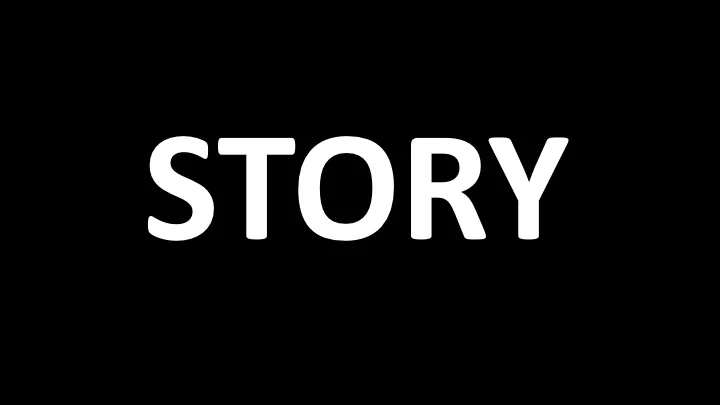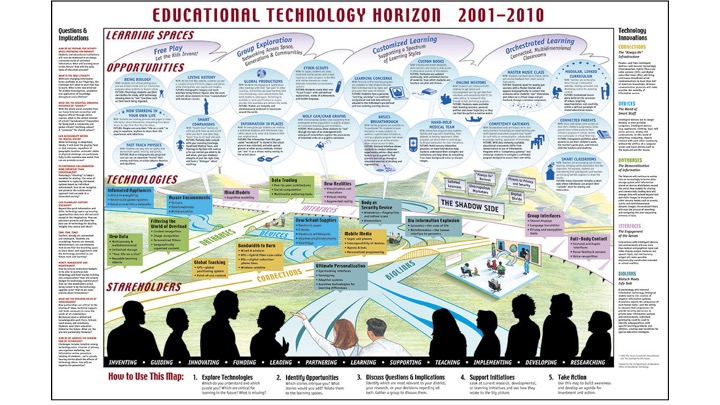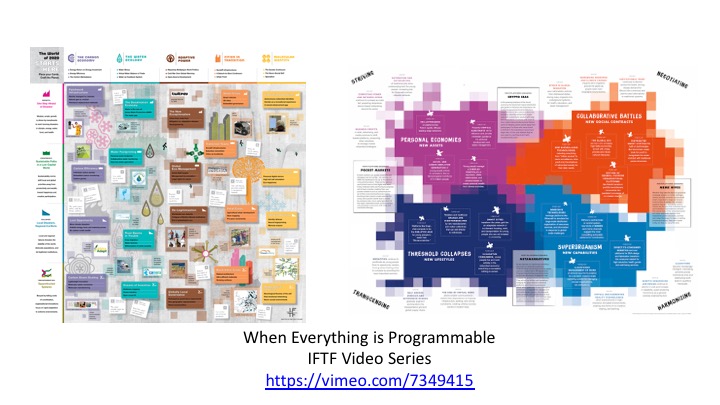Joe Lambert and his colleagues Elizabeth Woodward and Brooke Hessler from the StoryCenter were three of many wonderful contributors to BEYOND STORYTELLING 2018. The masterclass we ran with him and Brooke Hessler before the conference was an early highlight.
Being there with us and listening compassionate to the field made him change his keynote a bit, providing a surprising and inspiring twist to what he planned to show and tell. But he was generous enough to share his transcript for the key note he had planned. And I believe that it is very much worth sharing, as it taps the core themes of "Re-Authoring Futures" and BEYOND STORYTELLING as a conference.
Our gratitude reaches across the ocean, and we are looking forward to meet and work together again. Here are his words:
Woke –
Finding Home in the Story of Our Collective Future
A very brief introduction to my work. As was suggested, for 25 years I have helped people, usually in groups of 10 or so, make films like this one. Well maybe not all like this one, as I will share today, many of the stories we share are a bit more personal, a bit less of a call to action, than this one suggests.
I start with this story because in my country I believe we are living on the edge of something quite stunning, a tipping point of sorts between two narratives about the future of the United States. The seriousness of this could be overstated, hyperbolized for rhetorical impact, but I don't think anyone watching our country from the outside can quite believe how quickly it seems to be disintegrating, at least at the top of our Federal Government.
To tell the truth, most of us are just carrying on. I have been spending the last several weeks listening to survivors of California's Wildfires last year. And like listening to survivors of any scaled tragedy, you hear loss, and you hear resilience, you hear very, very individual vulnerability, and you hear collective will, almost celebration, of how valuable people become to each other in tragedy. The person covering for me on the wildfire project while I'm here in Germany had his million dollar eco-retreat burn up on Sunday under a pile of molten lava in Hawaii. It seemed somehow fitting that one refugee of the nexus between mother earth and our built landscape would be listening to other survivors stories.
So I come here thinking about stories of collective action, of collective resilience, of exhaustion and the need to compartmentalize one's fear and sorrow, the need to close your eyes for a bit in serene reflection, but also the need, to paraphrase Samuel Jackson, to wake the fuck up. To stay awake to how quickly this floating boat of modernity can come crashing down, with nature, with economics, with terror and counter terror. I'm not that worried, but it really is not the time for soft tales of goodness, or cynical dismissal of all efforts to derail these horrific descents into barbarism that the Trumps of the world are suggesting for us. We have to stay awake, and make stories that shake up this paradigm, and prepare for the next.
This is where I am today. And it is my deep pleasure to chat with you here in Hamburg. I will start in an odd place.
I'm not sure what story means anymore
For someone who runs The storycenter, who has spent his life in the world of story and storytelling, that is perhaps an unfortunate confession.
I can't speak my principally german and european audience, but in English, in our mainstream usage, I believe story has become too broadly defined, we all agree that story is the DNA of our culture as humans, or we wouldn't be here.
But is this just our discomfort with the analytical, is this a warm and fuzzy, more human face for our marketing and advertising, is story a way to thumb our noses at specialized language in the social sciences and suggest whatever you are doing, you are mainly just listening to stories people tell about themselves and others, is story a synonym for trust?
Of course any term can be re-invented a thousand times, in all sorts of categories of endeavor, but I am going to suggest something, in a conference called Beyond StoryTelling, here in Germany which has the wonderful linguistic tradition of creating such fabulous conceptual integrative word-concepts, we need your help.
We need a new word
Story also for has always meant something for us closer to a three step process. Three verbs. Listen - Reflect - Tell
In that Listen in English means much more than hearing and attentiveness, but what buddhists would call "Present Mindedness." I am not sure what you might call this kind of witnessing with full focussed attention. At StoryCenter, we say Listen Deeply.
And storytelling as we mean it also includes a component of "Thinking After" implied by the German word Nachdenken, I think, of taking what has been heard, reflecting upon it deeply, letting an the complexity of what is being said to one to sink in. It is more than understanding, it is both attention and a heart-felt appreciation for all the emotional components and potential meanings of what you have heard.
Then telling is allowing your story to be informed by the depth and thoughfulness of your reflection, and how you have heard either feedback, but as importantly, how you have held and been present to all the other stories being shared with you in a process.
Storytelling in the way we mean it is a practice, like meditation and yoga. It has endless permutations and specific spaces to connect to, it can foreground greater skill and refinement, or it foreground restoration and wholeness. It can be practiced as a daily five minutes of reflective writing, or in week long or month long retreat. It has all the flavors of all our cultural roots, our intellectual traditions, but it also connects us all. Certainly there is a word like this in some language, that encompasses process and product, conscious focus, relaxed intuition, creativity and purpose, the simple need to know and a much larger telos.
Any suggestions? In English, I like woke. An expression coming out of our African American community and the Black Lives Matter movement.
Woke is about that sort of present minded full awareness out of which come powerful stories that speak truth to the endless spin, the fake news, the polite protected power, stories that can go deep inside what needs to be said, the silences that need to end, can call on us to make ourselves alive with our own agency.
So what we mean by story in a way that has a ring of uprising to it, of resistance, in large forms as in movements for social justice, but also in the small forms of the fight for dignity in dehumanizing or simply troubling complexity.
It is not story. Not really. It is realization. It is a new insight. It is woke.
Anytime you are asked to speak first on the second day of a two day conference, 9 time zones from where you usually sleep, you know being awake is not easy.
Ponder that while I move toward the meat of my presentation today, about the idea of using story for forecasting and planning, a type of scenario storytelling.
When we look back on ourselves, ten years from now. What we will say about our choices?
This is a game many of us play, looking forward to look backward, looking forward to make sense of the present.
From techno-utopian visions to scenario storytelling
Those that know me, or read my work, know I took great power from a book my father gave me when I was young. Edward Bellamy's utopian fantasy, Looking Backward. How many of you know this book?
It is sort of a Socialist Rip Van Winkle tale of someone awake one hundred plus years in the future (written in 1888). For a fan of Jules Verne and H.G. Wells, my adolescent boy was into this early leftwing steampunk. Bellamy's book was enormously hopeful, looking at the best of what we can do, might do, in making an optimum future. And as all of us here understand, stories can and do make a difference. Hundreds of Bellamy clubs formed, nearly a million of these books sold in English and other languages afterward, and many, many people sourced their activism and commitment to social progress through the introduction to this story.
Of course these ideas were in line with the optimism of nineteenth and early 20th century socialism. Before a century of crimes, mass starvations and human rights disasters in the name of the socialist ideal. Before the wars of the twentieth century, and the ascendency of consumer capitalism as our dominant paradigm, with all its attendant positives and negatives. The idea of overcoming the tragedy of a early industrialism with the technological innovations of the end of the nineteenth century must have felt enoromously seductive.
To be frank I revisited this feeling as a techno-utopian in the late 80s and 90s. In "inventing" digital storytelling as a mechanism to engage people in digital technologies, I honestly thought we could use easy-to-use digital media production and internet distribution to unwind the negative effects of mass media on society. Can you believe it? As such I was happy to join forces with Apple, Adobe, Hewlett Packard, countless web branding and marketing firms, and a generation of rising stars in the tech, design and communications industry like Lynda Weinman of software training company, Lynda.com or Craig Newmark of Craigslist, Brenda Laurel of the girls computer game company Purple Moon, and Will Wright of Maxis/Sim City fame. These were folks in my neighborhood in San Francisco, and it was a heady time of invention and optimism like the end of the nineteenth century.
So when I was asked to give a talk at a conference called Beyond Storytelling, my first thought was to return to that era. The word Beyond suggested the vision of the step ahead. Where is all this story stuff really going?
I mentioned to Christine that for several years, 1998-2004 or so, I was a collaborator with the Institute for the Future. How many of you know this organization? They are America's longest running future forecasting organizations. Their role is to present major technological and social trends as 10 year forecasts prepared for large multinational corporations and government organizations.
Let me show an example of the kind of work they were doing as we brought Digital Storytelling to their scenario efforts.
During that period of techno-optimism of the 1990s and early 2000s, IFTF sought to expand their offerings to more local or grassroots groups like youth, educators, communities of color and others. We were particularly well suited to the idea of bringing forecasting and future thinking to these folks, and helped create several workshops with those constituencies in that period. And the stories were good discussion points, but frankly, that work had no future, pun intended. It was not core to IFTF's identity, and we did not see assisting people with imagining how their future might look with self-driving cars or wearable technology, given the crumbling of schools, the increased police harrassment and brutality, gentrification, income inequality, addiction, health crisis, etc with the folks were most working with. The present was enough.
Add into that were books like Taleb's Black Swan, that called the entire prognostication process out, and suggested playing the game of guessing the future, was a fools errand. So we didn't track this work, and neither did our friends at IFTF, although they continue to assist with assisting big organizations to consider all the issues in the world.
So I beyond the word beyond, I'm not quite sure why I decided to bring futures thinking and story together again.
But as I pondered this, I thought, well ..... I live in Oakland and so maybe it was this movie:
How many of you saw it?
The Oakland filmmaker, Ryan Coogler, is given a Marvel big tent film and he makes a film about afro-futurism. Actually about a past that became a fantasized future, a past where colonialism somehow left a group of Africans untouched. And they made a futuristic uptopia deeply invested in traditional african moral and cultural awareness. I will not say that this movie could not have come out of any other place in the world, but afro-futurism is definitely an Oakland kind of thing.
And of course, while story is often about memory and the past, it can also be about aspirations, intentions, goals and plans, big sweeping visions we have for ourselves and our organizations.
Past and Future in working with Story
When I lead the workshops in local communities, as I did with folks yesterday in our workshop here, I asked people to start with a story that encompassed the moral center of their childhood. The root of what they thought to be what was best about who they were, and where they belonged. And of course some folks struggled to find a positive root, because our lives can have many difficult, unhealthy and complicated roots from which we spring. But I asked them to imagine that place, where they knew that there was a place of resiliency, of moral courage or survival in the face of difficulty, and deep knowing that comes form that, that acted as at least a bit of a grounding for them. For some it was experiences with parents or mentors, for others it was community, and others just a place, or a connection to something other than fellow humans.
Stories like this one.
Most of us with stories about where we are going are not particularly cognizant about how we intend to carry the luggage of our past with us. One of the things about modernity, and advanced society, was the idea you could sort of leave, at any point, and cut ties. I did that, I am from the South, but I rarely ponder my southern roots. But when I am honest. I know I stand on this enormous history of Southern white resistance to the dominant culture of enslavement, impoverishment and exploitation. I am a son of organizers against that domination, whose parents were advocates for a more progressive, more equitable South, and even though they didn't fundamentally shift the narratives of that history, I carry that in my story every day.
So I don't believe you can successfully uproot, I think can use story to negotiate a new relationship with the weight of your rooted past, and with the strength of that, tell a story about your future that can hold some part of that past.
For many of you, and your work with large organizations, I believe the idea of knowing how you hold your past, and how you see a future beyond the next quarter, beyond the next fundraising drive or campaign, is critical. What I want to suggest is having the kind of discussions that integrate the moral and ethical connections you have with your assessment of your past as individuals, to link to a calling that defines your collective futures. What might that look like?
From Individual Pasts to Collective Futures
I was recently introduced to the work of Ari Wallach, whose LongPath organization has a clear-headed and straighforward approach to futures thinking that relates both to the ideas we have in story, and to what I would think is a more ethically sound perspective toward using scenario and futures thinking to assist us in our process. In brief summary he believes all of us suffer from a paradigmatic "sandbag" approach to problem solving, expediency for the sake of long term solutions that fails to hold a multi-generational possibility for problem solving that keeps us from asking the hard question, the telos as he calls it, the for what purpose question.
As I asked our storytellers to look at their own stories Thursday to project a future. I presented one of the prior graphics of social, cultural and technological drivers that I thought were relevant to most of our lives, and I asked them to write a new story, about their life in 2028, assuming health, and a non-uptopian, but an equally non-dystopian, prospect for them and their lives.
Then I asked them to share a singular image, object or representation of what would tie their past to their future, and where that would be found in the life on a given day in the future.
We didn't have the amount of time we working of a story that we would have in a normal workshop, and we certainly were not able to bring these stories into a discussion about how this might affect their personal or professional planning efforts with their organizations, but the results were interesting enough.
To end, I wanted to share a final story.
Sometimes when we think about our future we see the seeds in our present. We were blessed for several years to have on our staff a quiet young man named Tommy Orange. He was as gentle and careful a facilitator as you might ever want to meet. He was also a wonderful writer. Here is a piece he did with us looking at the way history might be told.
Please visit the home of the StoryCenter on the web at www.storycenter.com - a place of inspiration and resources!












